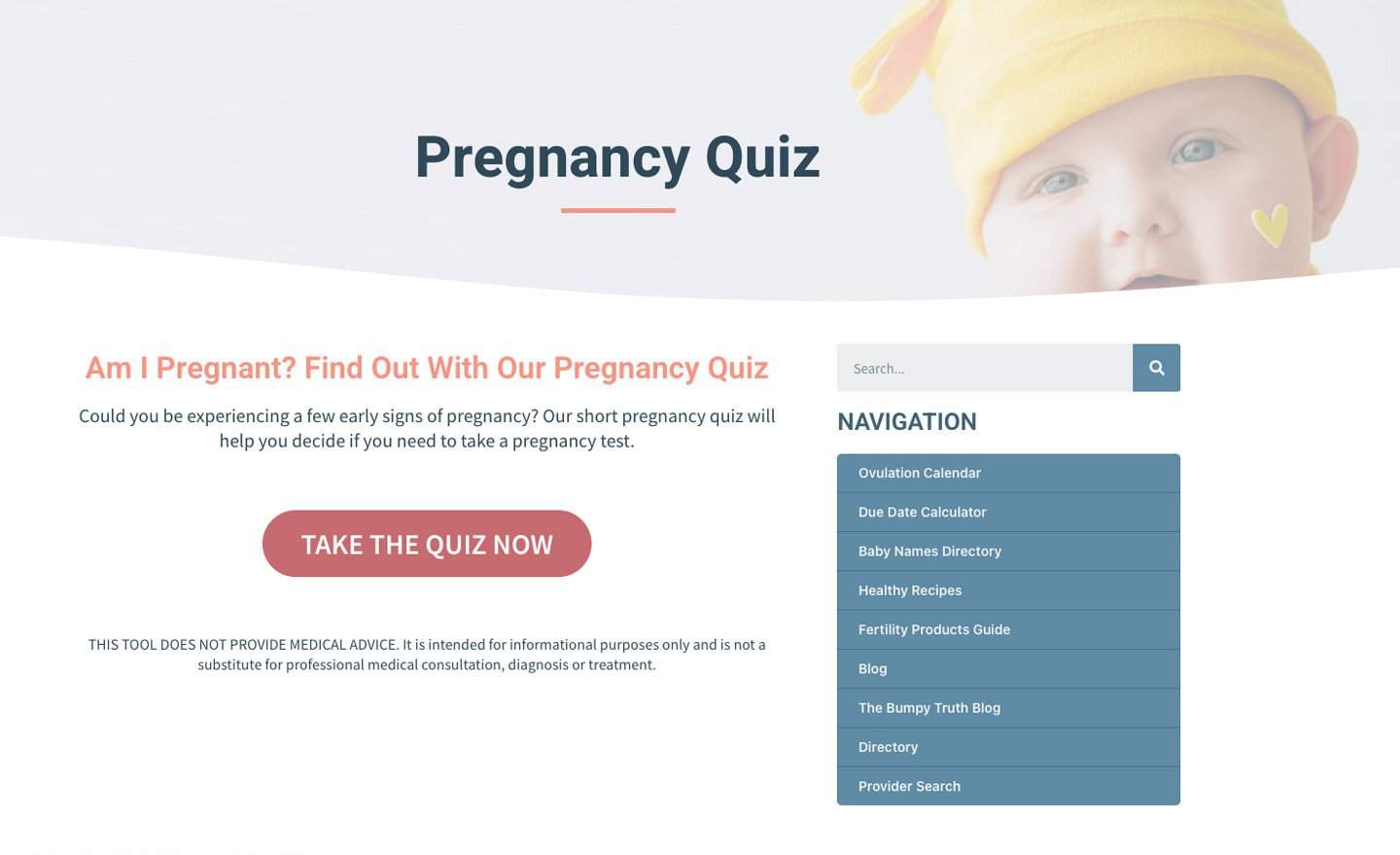Is It PMS or Pregnancy? Take Our Quiz to Find Out!
Hello there, amazing parents and parents-to-be! ? Are you scratching your head, wondering if those signs you’re experiencing are premenstrual syndrome (PMS) or the very first whispers of a new life blossoming within? Worry not! You’ve stumbled upon just the right place. Our “Is it PMS or Pregnancy?” quiz is specially designed to guide you through this maze of confusion. So, buckle up and let’s embark on this enlightening journey together!
Understanding the Common Ground
Before we jump into the quiz, it’s essential to know that PMS and pregnancy share some common symptoms, making them a tricky pair to tell apart. Both can present with mood swings, breast tenderness, and fatigue. But, as you’ll soon find out, the devil is in the details – or in this case, the timing and intensity of these signs.
Why Know the Difference?
Understanding whether you’re dealing with PMS or pregnancy is crucial. It can affect your next steps, from lifestyle adjustments to potential prenatal care. Plus, it can bring peace of mind or spark the excitement of possible parenthood. So, let’s lift the curtain of uncertainty together!
Spot the Signs: PMS or Pregnancy?
Often, the intensity and duration of symptoms can hint at whether they’re due to PMS or a growing little one. For example, are the breast tenderness and bloating just showing up a week before your period, or have they been persistent buddies for a while now? Do you notice any new feelings like nausea or changes in appetite?
Take the PMS or Pregnancy Quiz!
Our interactive quiz will guide you through a series of questions that pinpoint key differences between PMS and pregnancy indicators. Get ready to uncover the clues your body is giving you!
- Question 1: When did you first notice the symptoms, and how long have they lasted?
- Question 2: Have you noticed any spotting or bleeding other than your regular period?
- Question 3: Are your symptoms more intense than your typical PMS, and do any new symptoms arise?
Dive deeper into each question, noting how closely your experiences align with either PMS or pregnancy indicators. Remember, our bodies are as unique as we are, so no two experiences are entirely alike!
In-Depth Symptom Breakdown
To give you a helping hand before you even take the quiz, let’s dissect some of the most talked-about symptoms:
- Cramping: PMS cramps are your uterus’s way of saying “your period is on the horizon.” However, if they continue post your expected period start date, it might hint at impla
ntation cramping. - Spotting: Light spotting is common in early pregnancy, known as implantation bleeding. If it’s not time for your period yet and you see a little pink or brown, it could be a welcoming sign of pregnancy.
- Mood Swings: While mood swings are the hallmarks of PMS, pregnancy also takes you on a hormonal roller coaster, potentially intensifying those emotional ups and downs.
Taking The Next Steps
At the end of the day, whether it’s PMS or pregnancy, both are significant aspects of your health journey. If your quiz results point toward pregnancy or if you still have doubts after comparing symptoms, it’s wise to take a home pregnancy test or consult with your healthcare provider.
Your body is an incredible indicator of change, and whether it’s alerting you to an incoming period or the start of a new life, paying close attention is key. We hope this quiz will be a delightful beacon, shedding light on the beautiful complexities of your body. Stay tuned for our complete guide on differentiating PMS and pregnancy symptoms for even more insights!
And as always, take care of your wonderful self; you’ve got this! ?

5 Things Parents Should Know When Preparing for PMS or Pregnancy
1. Keep Track of Your Cycle
One of the first steps in preparing to take our PMS or Pregnancy Quiz is to be aware of your menstrual cycle. Mark down the start and end dates of your period each month. An irregular cycle may make it more challenging to distinguish between PMS and early pregnancy symptoms, but noting the nuances in your cycle can offer valuable clues.
2. Note the Symptom Patterns
Pay attention to the timing, frequency, and intensity of any symptoms. PMS symptoms typically arise one to two weeks before your period and subside with the start of menstruation. Pregnancy symptoms may persist and increase as the weeks go on. Familiarize yourself with your body’s patterns so you can spot any deviations that may indicate pregnancy.
3. Understand the Impact of Lifestyle
Your lifestyle can have a significant impact on both PMS and pregnancy symptoms. Stress, diet, and exercise all play roles in how your body reacts. When preparing to determine if you’re experiencing PMS or pregnancy, consider any recent lifestyle changes that could influence your symptoms.
4. Research Early Pregnancy Symptoms
Some pregnancy signs are not commonly associated with PMS, such as nausea, frequent urination, and heightened sense of smell. Educating yourself about these can help you make more informed decisions when taking the quiz.
5. Be Mindful of False Indicators
It’s important to understand that not all symptoms are clear indicators of pregnancy. For instance, not all women experience implantation bleeding, and stress can sometimes cause a delayed period, mimicking pregnancy. Therefore, it’s essential not to jump to conclusions based solely on symptoms.
Diving Deeper Into Symptoms Analysis
Appetite Changes and Food Cravings
Though both PMS and pregnancy can cause changes in appetite or food cravings, pregnancy might introduce new food aversions or an increased appetite that doesn’t subside after your period would have started.
Fatigue and Tiredness
Feeling tired before your period is common due to fluctuating hormones, but if the fatigue is overwhelming and persists beyond your usual PMS window, it may be a sign of early pregnancy, as your body adjusts to support the developing embryo.
Nausea and Morning Sickness
Nausea is a classic sign of early pregnancy, commonly referred to as morning sickness. This can happen at any time of day and is a symptom not typically associated with PMS.
Breast Changes
Both PMS and pregnancy can lead to breast tenderness, but if the tenderness continues past the due date of your period, or you notice darkening of the areolas, it may suggest pregnancy.
The Role of Home Pregnancy Tests
After considering all symptoms and signs with the help of our quiz, a home pregnancy test is a good next step if there’s a possibility of pregnancy. For the most accurate results, wait until the day of your missed period to take the test, and follow up with a healthcare provider regardless of the outcome.
Final Words Before You Embark on the Quiz
Discovering the cause of your symptoms—whether it’s the onset of PMS or the joy of an early pregnancy—is a journey unique to you. Our comprehensive quiz helps you map out your symptoms, providing clarity in this often puzzling time. Do remember that the quiz provides guidance and should not replace medical advice. For any concerns or persistent symptoms, always consult with a healthcare professional.
Armed with knowledge and supported by our quiz, you’re well-equipped to interpret the signals of your body. Embrace this quest with confidence and curiosity, and let the insights you gain lead you to a deeper connection with your own health and wellness journey.
We warmly invite you to dive in and explore your symptoms with our interactive quiz. Your answers are just a few clicks away. Trust your intuition, trust your body, and let’s discover the answers together. Ready? Let’s go!
See more great Things to Do with Kids in New Zealand here. For more information see here
Disclaimer
The articles available via our website provide general information only and we strongly urge readers to exercise caution and conduct their own thorough research and fact-checking. The information presented should not be taken as absolute truth, and, to the maximum extent permitted by law, we will not be held liable for any inaccuracies or errors in the content. It is essential for individuals to independently verify and validate the information before making any decisions or taking any actions based on the articles.




